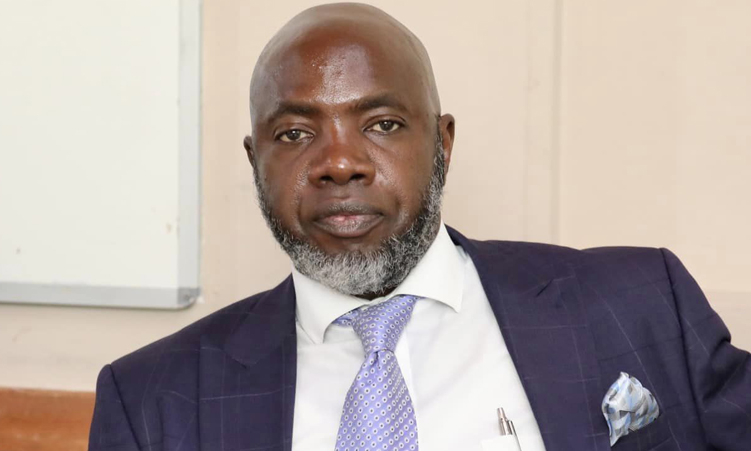On 27 November 2024, eligible Namibians will head to the polls to
elect the new president and members of the National Assembly.
We have done this since 1989.
Elections are fundamental and a prerequisite for democracy. Elections allow people to exercise their power to choose or change their leaders. The elected representatives act on behalf of the people, lead them and make laws for them. This is to say that democratic elections are a cornerstone of democratic governance, enabling citizens to actively participate in shaping the direction of their nation and fostering a sense of legitimacy and accountability in the political process.
To achieve efficient and impartial election coverage, journalists must first prepare by acquiring basic knowledge of any relevant legal documentation, such as the Constitution, the Electoral Code of Conduct, and any journalist regulations associated with your work, so that you are respected and trusted by the various electoral actors.
At the same time, they watch and report on the unfolding elections. To be able to inform others, a journalist should first be well informed. Journalists need to prepare for their reporting by educating themselves on the different institutions involved in the organisation of elections, campaign rules and regulations, the format of the ballot papers and the procedures for announcing the results.
The election does not only concern participating candidates and political parties. Elections are also an important opportunity for ordinary people to express themselves, relate what issues are most important to Namibia, region, community or family and why these issues matter to them. Allowing people to speak out during elections is very important. It lets candidates know the aspirations and concerns of the population and will enable citizens to own the process and participate more actively, ensuring a more
representative government.
The media plays an important role in this. The media is supposed to maintain equal distance towards all parties to correctly exercise its role as a critical observer of the electoral process. Times have changed. In the age of social media, we have become accustomed to journalists expressing views that could be considered partisan.
As the late journalist Lindsay Scott said in 2023: “The opinions of any journalists posted on social media are no more important or right than anyone else’s opinion. There are no exceptions, because someone is a journalist. The problem is that the boys (and girls) in the media think there should be, that their opinions are better informed, carry more weight and deserve to be treated as truth.”
The p resident and members of parliament are not going to be elected by the media. The job of the media must be to provide a platform for political parties and candidates to communicate their message to the electorate. There ought to be an understanding that journalists’ primary responsibility is to their fellow citizens. You may not personally like the candidates or the parties. That is fine.
But they are nominated by their members to run for political office. That is why journalists need to avoid supporting a specific candidate or party. I know it is hard to resist the pressures of your own opinions.
I have already discussed the media as a mechanism for transparency to ensure that voters are provided with the information necessary to fully evaluate the conduct of officials and the process at large. I also discussed that the media as a campaign platform ensures the public is educated about the political agendas of all participating parties and candidates. Media as an open forum for debate and discussion ensures that voters can educate other voters, politicians and officials.
To achieve this, the media must develop a stronger understanding of the constraints, pressures and professional needs of journalists and develop ways to meet them. We should engage with media owners, managers and
editors to discuss how to strengthen the level and quality of coverage on issues related to election coverage.
There is a need to engage the interest of media to integrate election stories into the core areas of journalism, such as politics, business and economics,
governance and corruption.
Namibia dropped to second place in the latest press rankings. Among the reasons cited for this drop is that journalists were barred from covering media conferences at State House. I am saying this is contained in the release of 2024. It is difficult to appreciate the methodology used in reaching this conclusion. Covid-19 formally ended in 2022. Why was this reason not cited in the 2023 report? We do not insist on being at the top of the rankings if there are reasons that contradict our performance. However, the methodology must be above board to have legitimacy. As media operators, do you provide sufficient analysis to the average Namibian to appreciate the meaning of world press rankings?
Very recently, the international media reported that Namibia is culling elephants and other types of game to feed the country’s dying people. They do not explain that Namibia has an elephant population that is not viable. What do we as Namibian journalists say about this? Do we repackage these narratives and feed the unsuspecting public? The stories have been flavoured with a racist undertone that Africans cannot look after their animals.
Why are you not asking them what they did with theirs? The truth is that they ate all of them. And they now want to tell us how to conserve ours. What is necessarily true is that, as one commentator said, the media does not write the truth. They write what they are told. – Executive director of information and communication technology Audrin Mathe at the closing ceremony and official certification ceremony of journalist training aimed at enhancing effective reporting on the 2024 electoral process, 13 September 2024, Windhoek.
Stay informed with The Namibian – your source for credible journalism. Get in-depth reporting and opinions for
only N$85 a month. Invest in journalism, invest in democracy –
Subscribe Now!







